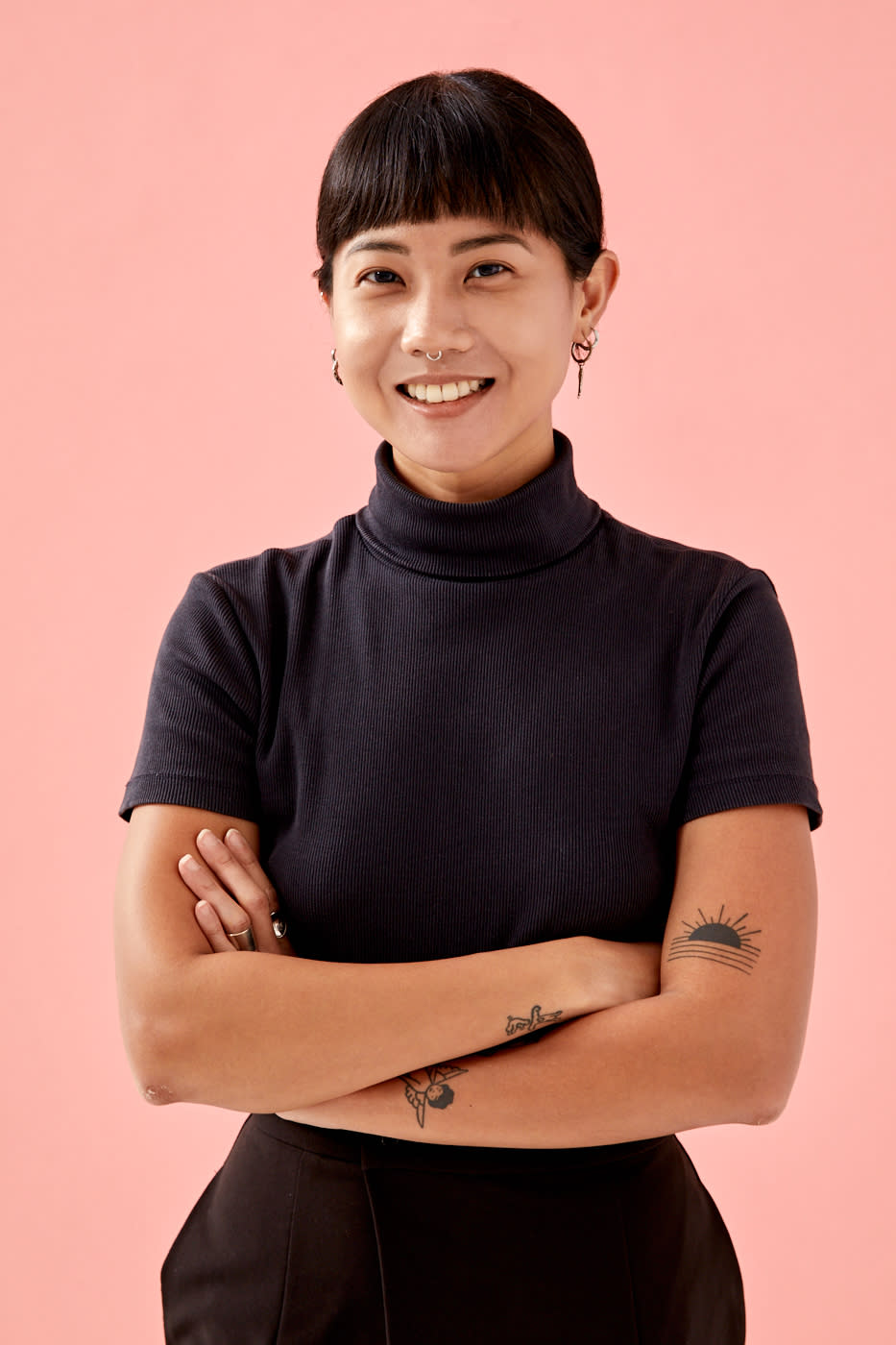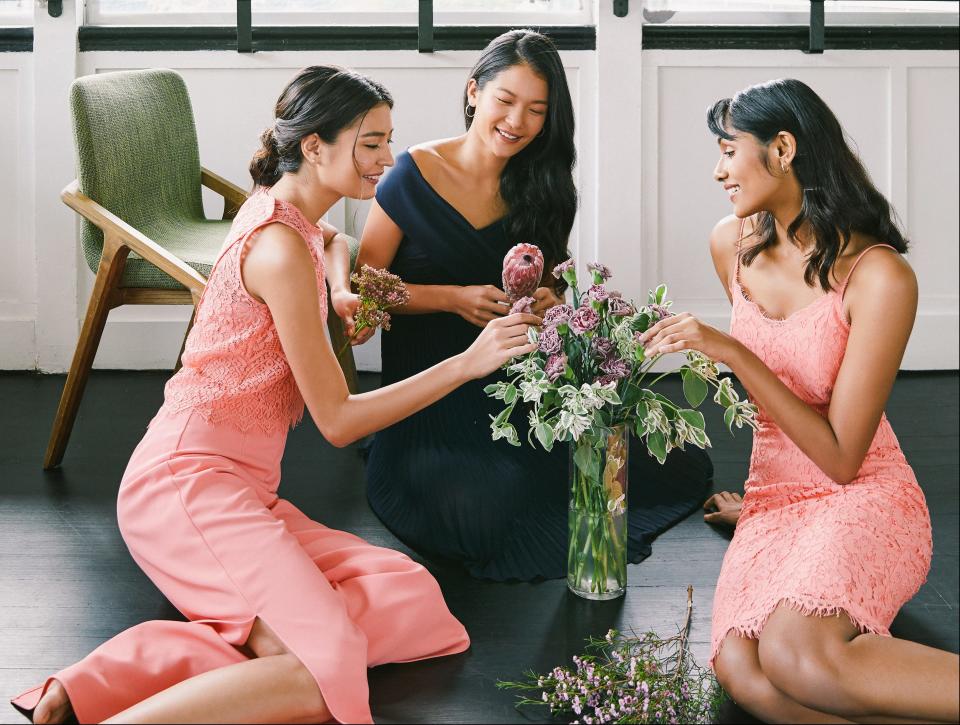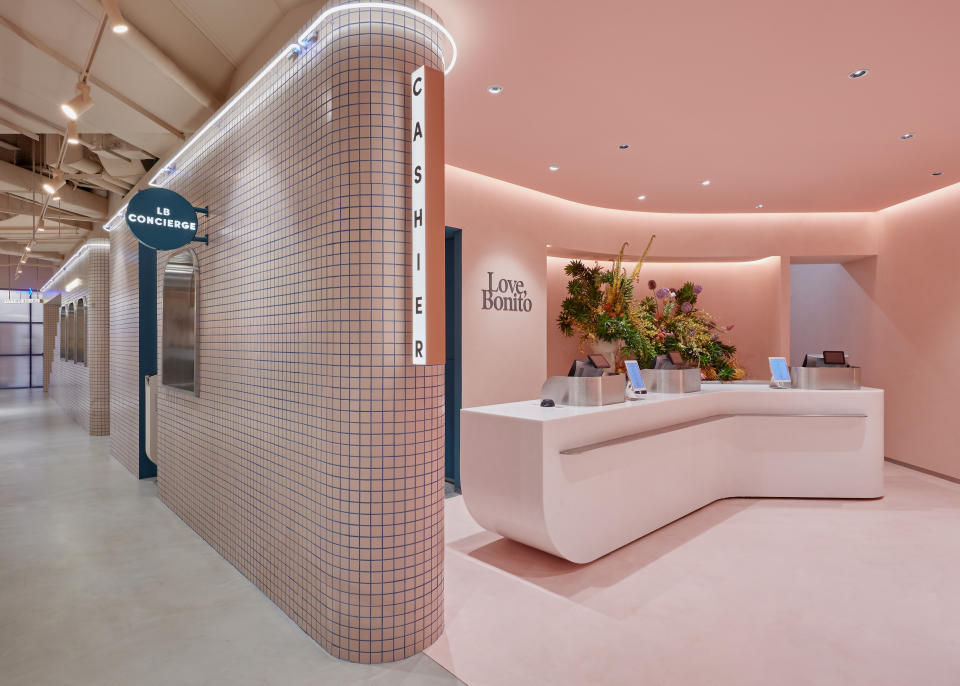CEO Talks: Love Bonito’s Dione Song Believes It’s a Woman’s World

SHANGHAI — The past year for many brands has been a trying time to say the least, but Love Bonito, the Singaporean-based affordable fashion label, is having a strong run. Despite the lockdowns induced by the pandemic that are still in force in several of its main markets, the business for this year to May has jumped 73 percent year-over-year to reach $44 million.
The retailer, which mostly sells pieces retailing for $20 to $50 per item, believes its commitment to female and Asian-centric design is helping its sales shine through this period. Led by chief executive officer Dione Song, the 11-year-old brand is attempting to push past being just an established regional name and build a more global presence.
More from WWD
The retailer’s footprint spans 10 markets — mostly in Southeast Asia: Singapore, Malaysia, Indonesia, Philippines and Cambodia, but more recently has reached further north into Taiwan, Hong Kong, and soon, Japan. It’s also just begun tapping into the large opportunity offered by the Asian diasporas in Australia and the U.S.
Here, Song explains her strategy, including how operating a mass fashion business can still be thoughtful, delving into the needs of Asian women, as well as why Song thinks the brand vision ultimately lies beyond apparel.
WWD: Who exactly is the Love Bonito customer?
Dione Song: We’re a direct-to-consumer women’s brand with the key mission to really empower the everyday Asian woman with very deep female and Asian-centric design sensibility. Beyond that, we hear so much about the likes of Shein playing in a similar space, but we see ourselves differently. We’re not actually catering to the teenage segment. We are reaching out to women [of the ages from] their early 20s all the way through their late 40s.
In the fashion space we asked ourselves, “why can’t there be a brand that is cross-generational that reaches across life stages in a thoughtful manner?” That’s why we’ve evolved the assortment — we started in workwear and expanded it into ranges like bridesmaids, maternity and into kids, as well.
One thing that we see which is actually quite unique, I would say, is that 32 percent of our customers we acquired 10 years ago are still actively engaged in shopping, meaning they are transacting at least four times a year. I think that’s a testament to how we are always catering to women, that they stick with the brand year after year after year.

Courtesy
WWD: What makes Love Bonito different from the likes of international retailers like H&M, Mango and Zara that also operate around similar price points?
D.S.: For one, the exact fabric colors that we’re choosing to ensure it is really complementary [for Asians]. One thing that’s universal in terms of Asian skin tones is it’s a slightly warmer undertone. So we try to pick always the right shades so a lot of women just anecdotally come to us and they love our pastels, they love our yellows, oranges. They love our reds and they’re like, “Hey, for the first time, it’s nice, it’s flattering. It really complements the skin tone.”
The other bit I would say I think it’s really the female-centricity. Really ensuring that we have the right elements of design. For example, if it’s an adjustable top, right, so that women have more mileage for their product. We all go through the time of the month or sometimes you may just feel bloated. There are all these different enhancements to make sure it’s comfortable. And for us, fashion for women, when we say we want it to be empowering it’s not just by looking beautiful, but about being confident. It’s still being comfortable while having that functionality.
WWD: One major hurdle commonly cited by any company that operates in Southeast Asia is the incredible amount of diversity across the region. How has Love Bonito accommodated for all those differences?
D.S.: It’s not the same at all, there is varying disposable income, preferences and so on. We started the journey in Malaysia and Indonesia and you have to cater to the market adapting and customizing in a very smart, intelligent way.
So say, for example, for launching a maxidress, in Malaysia, we might take down the sleeve because Malaysia and Indonesia are predominantly more modest markets as well and modern modest. The clientele, even if you’re ethnically Chinese, you would cover a little bit more [because of the societal context]. What we do for the market is it’s exactly the same silhouette but we take down the sleeves and maybe bring up the neckline as well. Number two, I think it’s all about how you style it. A lot of it then is how you mix and match and then it can become a very modest, friendly piece.

Courtesy
WWD: You’re now selling in 10 markets. What’s the strategy underlying your expansion into other geographies?
D.S.: Three years ago we started thinking expansion is not just thinking about the region [of] Southeast Asia. It’s about really reaching to the everyday Asian woman and she’s everywhere. We started trying to look for markets where we can actually demonstrate a very perfect product market fit, in other words where can we find women who are very similar to the Singapore female?
We started researching indicators like height and weight and identified markets in Northeast Asia — Hong Kong, Taiwan and Japan, as similar fits. Japan is a big focus for us this year. Then there are markets like the U.S. and Australia, especially where, you know, I think to be Asian, it’s hard to find brands that actually fit you because you don’t see a good supply of that. At least in terms of initial early adopters, we see quite a big base coming from Asian Americans.
I think COVID-19 basically flattened that playing field for everyone, in terms of customers just being more exploratory and open to e-commerce shopping and just with the recent narratives and everything that’s happening with Asian pride and other different movements. We’ve been seeing a huge organic pickup actually with a lot of women in the U.S., not just customers but also influencers just wanting to champion the brand.

WWD: Why is Japan in particular, where you’re launching this quarter, so important for the business?
D.S.: Japan is a market we’re excited by because we see a huge addressable market with what we produce. I think also fashion is quite mature in the market but it’s not as refreshing. You don’t see that much innovation and updates, which is where we feel as an independent direct-to-consumer brand, we can really enter the market with a splash and with a big bang.
I think Japan is a market that’s really going to see an inflection point where more women are speaking up and are more empowered and a lot more women are going to the workforce. I think that community and movement that we really just want to be a part of.
We’ve always believed that we’re in the business of women, not just in the business of fashion. That’s always been our guiding principle. Our bigger ambition is to create a female ecosystem for everything that’s thoughtful and relevant on the everyday Asian woman so it could be beyond fashion into health and wellness, other categories and verticals. Health and wellness is definitely a key area that we’re excited to be expanding into soon.
WWD: What range of products are you considering?
D.S.: From apparel all the way through to female essentials, vitamins and so on, or even services for mental health, content education, supporting women through different moments.
In the past, we’ve always been quite active in terms of just having community outreach and programs. For example, for the launch of our maternity line, we had different panels discussing topics such as postpartum depression. Let’s talk about it, because no one in the community is talking about it. Can we normalize such issues?
So I think for us as a brand it’s always been about pushing that boundary. In Southeast Asia, the market is in its nascent stages even for things like contraception or sexual wellness. It’s not really highly acceptable yet. Can we be that big sister, very relatable brand to champion it so that more women across the community come forward to just be more comfortable speaking out?
Related:
4 AAPI-Owned Emerging Brands to Watch
Best of WWD
Sign up for WWD's Newsletter. For the latest news, follow us on Twitter, Facebook, and Instagram.

